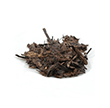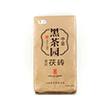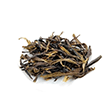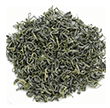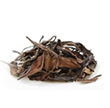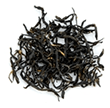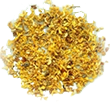Why Tea Tastes Bitter & How To Get Rid Of It (Part 1)
There are a number of reasons why tea tastes bitter and astringent. This week I will show you some of these reasons. Next week I’ll show more reasons and a quick way to make your tea to get rid of the bitter taste.
- Chemical Compounds: Tea’s bitter and astringent qualities come from two types of chemicals that are found naturally in tea leaves; polyphenols (tannins and catechins) which cause astringency and theophylline which causes bitterness
- Plant Species: Most westerners drink Black tea from India. The Indian tea plant (Camellia sinensis var. assamica assam) is a tougher plant than the Chinese variety (Camellia sinensis var. sinensis) with higher levels of natural caffeine and the chemicals that cause bitterness and astringency. The leaves are often broken, causing bitterness while brewing
- Harvesting Season: Longer hours of sunshine increase the concentrations of catechins in tea leaves and so increase the astringency. Teas made from leaves picked in summer (which are usually the cheapest and lowest quality teas) tend to contain the highest concentrations of catechins, followed by spring tea, autumn tea and then winter tea which has lowest levels. Since a tea tree or bush has had its leaves picked multiple times by autumn, new autumn tea shoots contain less nutrients and bitter compounds. Autumn tea is prized for its fuller taste and aroma compared with spring or summer tea.
- Growing Altitude: High altitudes have more unstable weather patterns and less sunlight than other regions. Tea leaves produced at high altitudes contain lower levels of catechins, hence, tea from these leaves tastes less astringent than teas grown at lower altitudes.
- Natural Sugars: The presence of natural sugars and amino acids in tea leaves help to balance the bitterness in tea. There is a higher concentration of these sugars in spring and autumn picked leaves, which gives these teas a sweet and less bitter taste than teas made from summer picked leaves.
- Size/Age of Leaves: Young, tender leaves have high levels of catechins. They also have higher levels of caffeine which intensifies the bitter taste of tea. Tender leaves also contain higher levels of sugars and amino acids which balances bitterness. Old leaves contain lower levels of polyphenols and caffeine as well as lower levels of amino acids, which gives these teas a lingering bitter taste.
Next week I’ll show more reasons why tea can be bitter, and a quick way to make your tea to get rid of that bitter taste.
This article is continued at:For more information on how to make Chinese Tea, see our complete article in the Learn Section at "Gong-Fu Cha - The Complete Guide To Making Chinese Tea - By Daniel Lui"
 Top of Page
Top of Page

Ask The Tea Wizard
Don't know which tea is right for you? Answer a few questions and the Online Wizard will show you all the Chinese teas that suit your taste.


